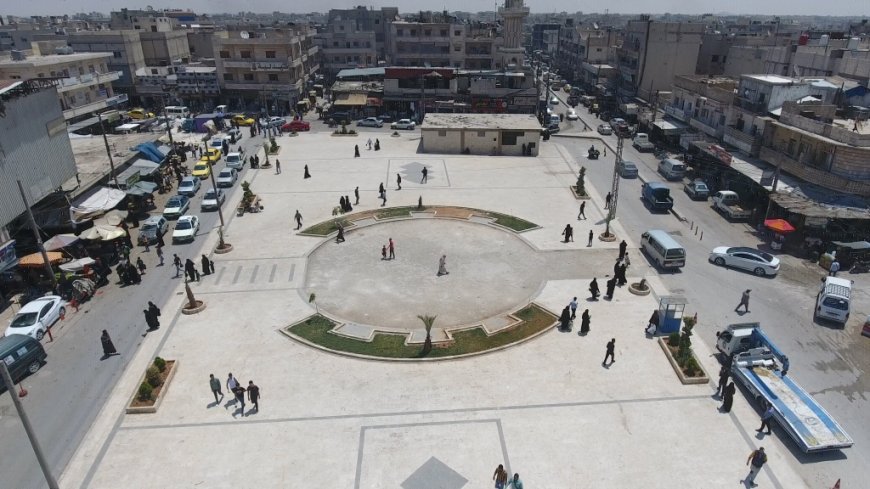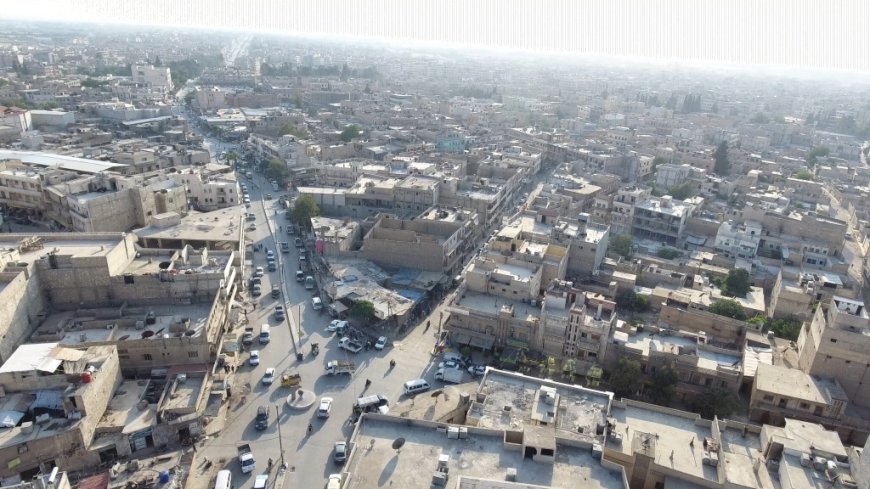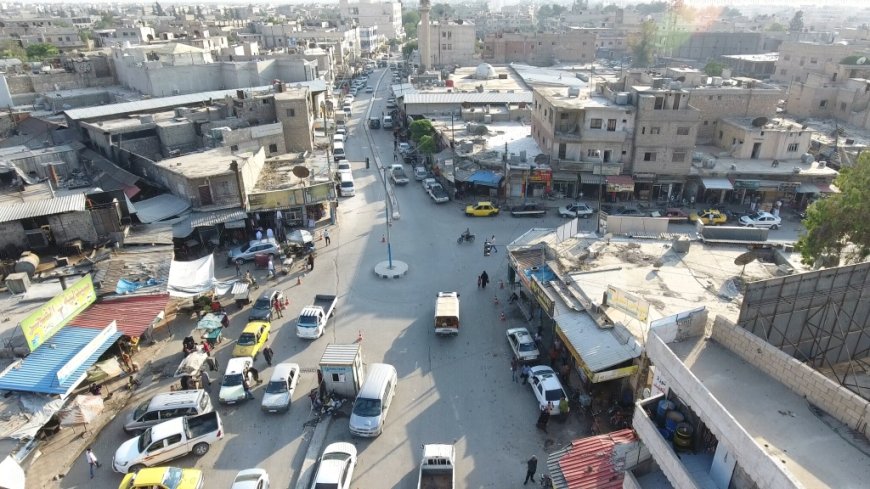Manbij and rising from the rubble
Thanks to the solidarity and sacrifices of the sons and daughters of Manbij, the province rose from the rubble after its liberation from ISIS mercenaries to flourish again.
On August 15, 2016, the forces of the Manbij Military Council MMC announced the liberation of the city of Manbij from ISIS mercenaries, which date turned into an important date and stage, and a base from which they began towards prosperity and progress and whose main motive was their solidarity and sacrifice in the battle for liberation.
The participants in the liberation campaign continue to speak of the most salient details of the liberation campaign of Manbij, as the most important event in their lives and their struggle for the freedom of their people; a member of the institution of war-wounded persons at the Ibrahim al-Hassan Military Council, which joined in 2015 the MMC in the Tishren Dam, 20 kilometres south-east of the city of Manbij, participated in the liberation campaign to liberate its people of injustice and the slaughter of ISIS mercenaries.
We seek peace
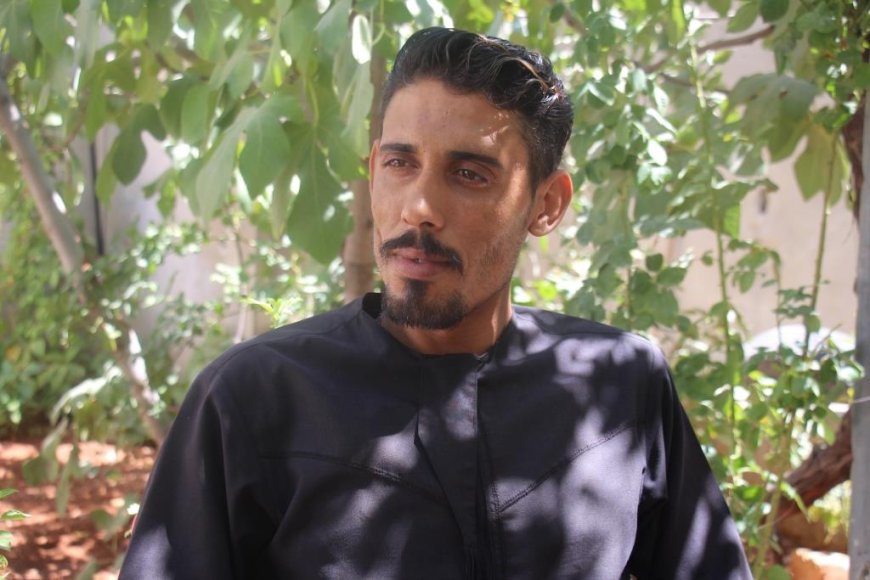
Ibrahim al-Hassan explained: "Our people have the greatest credit for liberating Manbij, as they helped us by providing information about the locations of the terrorist organization and welcomed us with ululations and joy. When any village was liberated, in the first moments, our people would join our forces with great enthusiasm, and everyone wanted to participate in liberating their land and people."
Ibrahim al-Hassan, who was injured in the campaign to liberate Manbij, explained: "The people's support for our forces greatly raised our morale and pushed us to continue the campaign." He noted the restoration of security in the city of Manbij and the rapid return of life to it, and the people breathed a sigh of relief. He said: "This makes us realize the extent of the achievement we have made during the liberation campaign, and gives us a greater motivation to defend our land. We seek peace and are therefore always ready to defend our land and people."
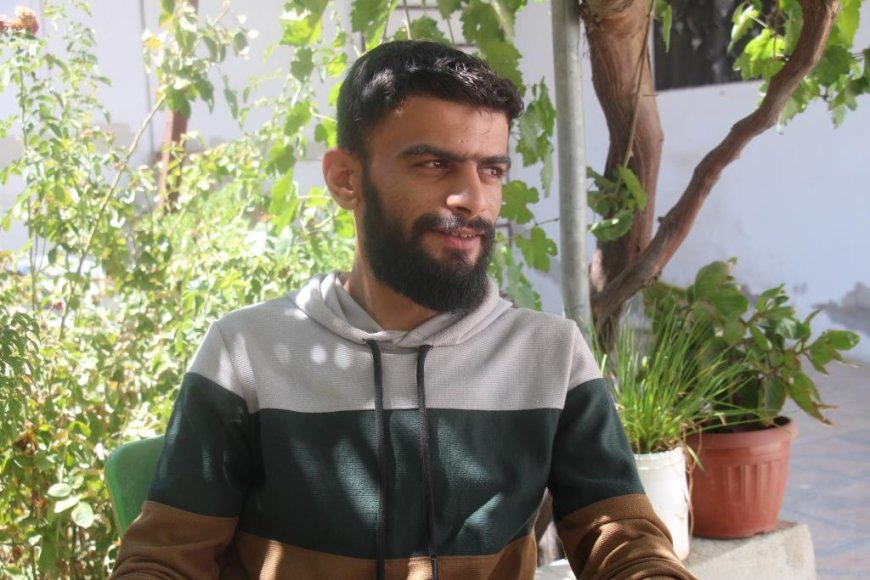
As for the fighter Osama Askar, whose brother was killed by a sniper at the hands of ISIS mercenaries, and one of the young men who joined the Manbij Military Council forces during the campaign to liberate Manbij, and lost his left foot during a combing operation of the last strongholds of ISIS mercenaries in Manbij following a mine explosion, he confirmed: "I joined to lift the injustice from the people, the injustice practiced by ISIS and I witnessed it directly after my brother was killed at the hands of an ISIS sniper, this injustice prompted me to join the Manbij Military Council forces as one of the sons of the villages that were liberated at the hands of the Manbij Military Council forces."
Askar drew attention to another matter that caught his attention and made him join the ranks of the Manbij Military Council forces, which is the good treatment he witnessed from the forces and the ideology that they adopt, the ideology of brotherhood of peoples and peace. He noted that with the liberation of Manbij from ISIS, feelings of solidarity and cohesion returned among all components of the city that suffered greatly during the control of ISIS mercenaries.
Rising from the rubble
During the liberation of Manbij and its villages, the special teams worked to remove the mines planted by ISIS mercenaries everywhere in an emergency and phased manner, in order to prevent the residents from leaving the city, and secondly to prevent the advance of the Manbij Military Council forces. After the liberation of the city, the special teams made strenuous efforts to remove the mines so that the residents could return to their homes safely. The city was full of car bombs and mines; on the other hand, the Democratic Autonomous Administration of Manbij Canton contributed to organizing the residents within councils and communes.
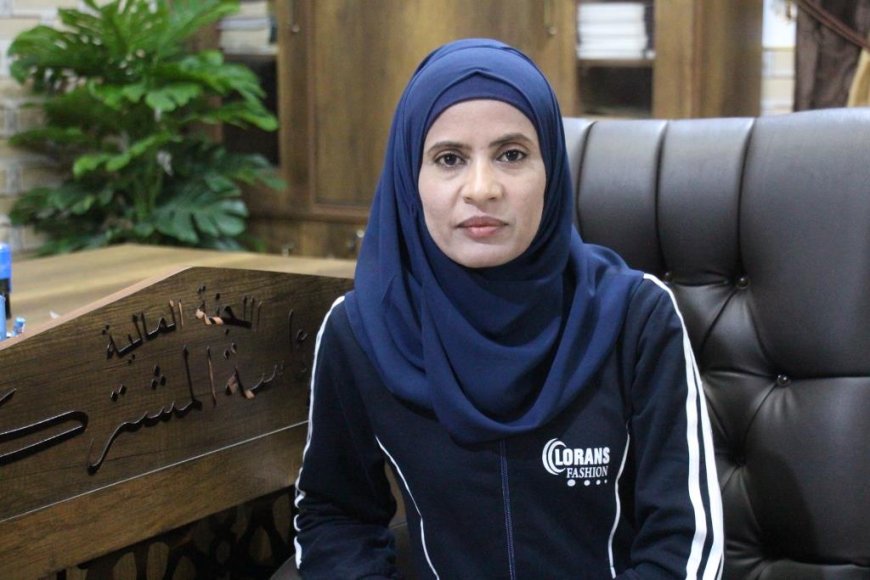
The co-chair of the Finance Authority in Manbij Canton, Noura al-Hamed, who was one of the first to start working on establishing councils in Manbij, said: “During the campaign to liberate Manbij, and when one village after another was liberated, we organized the residents by forming civil councils and communes and providing services to the residents as an emergency case. When the city of Manbij was completely liberated, the civil council was announced to manage the work on an emergency basis.”
Noura al-Hamed confirmed: “After the liberation of the city, the process of removing mines from homes, streets and neighborhoods and cleaning them began. The residents gradually returned and the city, which had been severely destroyed, was rebuilt. In return, the process of establishing autonomous administration institutions in the city of Manbij and its countryside began.”
"Education before food"
The Democratic Autonomous Administration in Manbij Canton has given great importance to the education and health sectors to recover society from the remnants of ISIS mercenaries and their extremist ideology, and to build a better tomorrow by building generations that have been deprived of education for more than 3 years.
Noura al-Hamed confirmed that the Autonomous Administration has taken it upon itself since its establishment to rebuild the education sector, which was suspended for a long time due to the control of ISIS mercenaries. The Autonomous Administration launched a campaign entitled "Education before food" to highlight the importance of education, and began re-habilitating and building schools and preparing and qualifying teachers to keep pace with the educational process again.
So far, the number of schools in Manbij Canton has reached 350 schools, including students in the primary and secondary education stages, and the number of students has reached 127,990 male and female students, and the number of teachers has reached 5,620 male and female teachers. The Education Authority has been keen to provide them with intensive training on modern teaching methods that keep pace with the development of the era.
Concrete steps in the health sector
After education, the Autonomous Administration gave importance to the health sector, and Noura al-Hamed indicated: "The opening of clinics and hospitals in the city of Manbij, especially al-Furat Hospital, which ISIS turned into a private hospital for its members, was rehabilitated and opened its doors to receive residents and provide them with free medical services. It played a major role in saving the lives of residents, especially those injured as a result of mines and ISIS remnants."
The efforts of the Health Authority in Manbij Canton during the past years included restructuring al-Furat Hospital, which was systematically destroyed by ISIS mercenaries. New departments were also created in the hospital, namely the kidney, intensive care, thalassemia, and emergency departments. The hospital was supplied with modern equipment, including kidney dialysis machines, baby incubators, clinic echo, a submarine, an X-ray machine, a bow device, a bone kit and monitors for care, a ventilator and complete laboratory equipment, in addition to establishing a drug warehouse for the hospital.
The Health Authority reconstructed and restored clinics in the countryside, and rehabilitated the infrastructure and medical staff of the 15 clinics, which are (al-Awsajli, al-Arimah, Tal Hawdhan, Abu Kahf, al-Muhtariq, Tal Al-Rafi, al-Rasm al-Akhdar Camp, Ras Ain Al-Hamr, Himer Labdah, Awon al-Dadat, al-Mashi, Abu Qalqal, al-Hayah, al-Asaliyah and the Primary Health Care Center in Manbij).
In addition, the central pharmacy and the central laboratory were established, which provide services to the people at symbolic prices. The emergency ambulance system was established in al-Furat Hospital, and it was provided with 13 ambulances. The construction of the new hospital on al-Rabita Street was completed, and work is underway to activate it in the coming months. It is scheduled to open a complete radiology department, which includes (mammography, magnetic resonance imaging, a kidney stone fragmentation device and a cardiac catheterization device) devices.
8 Years of Prosperity
Noura al-Hamed touched on the prosperity witnessed by Manbij despite the difficulties: "In the eighth year after its liberation, the city of Manbij has become a prosperous city through projects in the health, service, educational, organizational and cultural fields, and has achieved a qualitative leap in development, as it has good raw materials of educated and cultured people, and we see that the years after the liberation have made a difference in the progress of Manbij throughout its history."
Noura al-Hamed pointed to the difficulties they face at the current stage: "Despite all that the Manbij canton has achieved, our ambitions are much greater than that, and the biggest obstacle that delays the achievement of this progress is the attacks of the Turkish occupation and its mercenaries that continue on a daily basis, because the liberation of Manbij closed the door to the occupation in bringing its mercenaries into northern and eastern Syria; therefore, it is trying to destabilize security and stability, and this hinders the movement of development in the Manbij canton."
Women in Manbij from injustice to decision-making
The suffering of women in Manbij was doubled during the control of ISIS mercenaries, and they were deprived of their most basic rights. The campaign to liberate Manbij and the participation of women in it was a glimmer of hope for all the women of Manbij; Noura al-Hamed explained: “The launch of the campaign to liberate Manbij and the presence of women in this campaign and their carrying of weapons to defend their people valiantly, strengthened my confidence and the confidence of all the women of Manbij, and my seeing women carrying weapons and fighting gave us an incentive to undertake this experience in building institutions and administrations in the city of Manbij, and to practice work within this democratic project.”
Noura al-Hamed stressed that: "The co-chair system that has existed since the beginning in the committees and institutions of the civil administration was one of the main factors for women's participation in establishing the autonomous administration. This system, which the people of Manbij learned about for the first time, encouraged women to take their role and struggle in it, especially since it came after several systems that suppressed women and reduced their role."
Noura al-Hamed noted that: "Women in Manbij Canton, since the establishment of the autonomous administration, have had as a priority the organization of women's institutions such as the Women's House, and also the formation of the Women's Committee, which works to develop women politically, organizationally and economically. Women have made a radical shift and moved from nothing to everything, becoming co-chair in all sectors, playing a leading role in making decisions and participating in defending Manbij Canton."
T/ Satt.
ANHA

